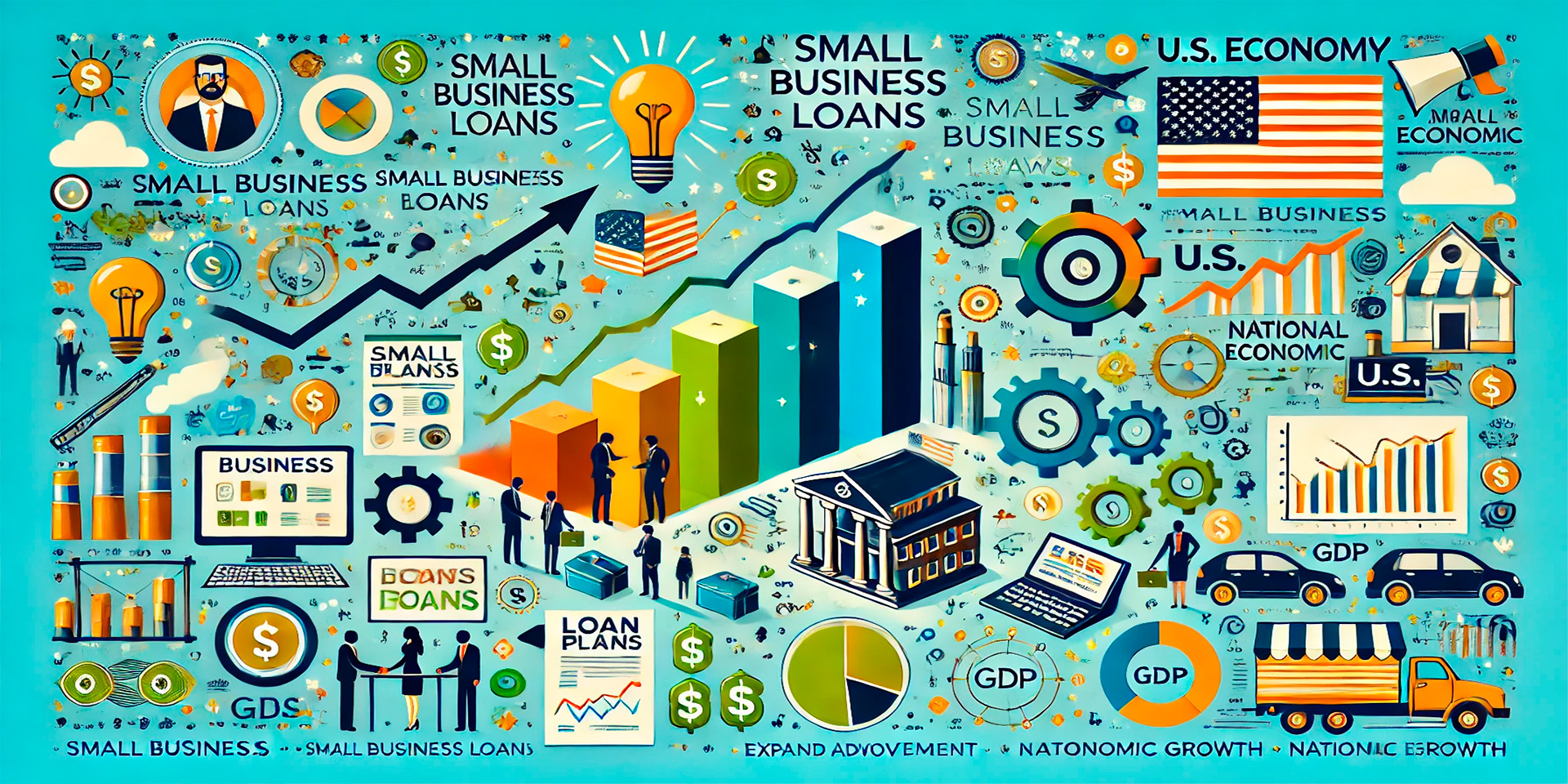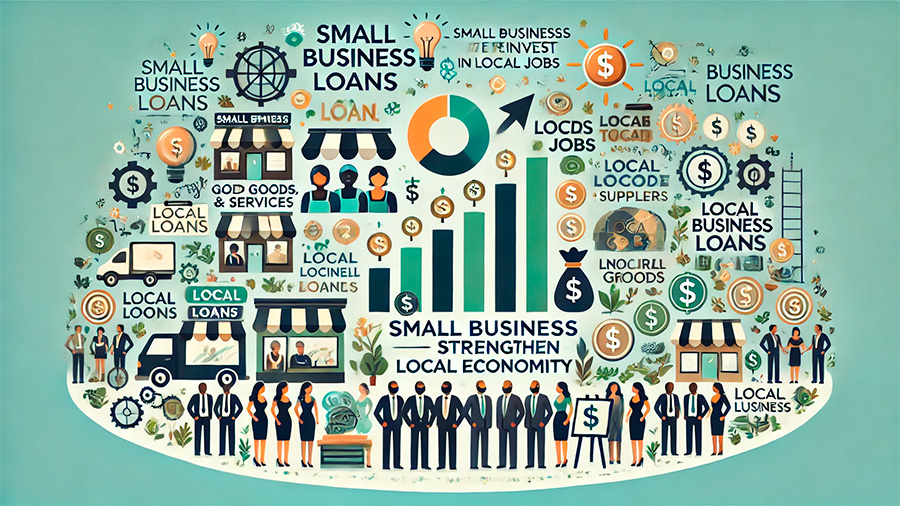
The Economic Impact of Small Business Loans on U.S. Growth
Small business loans are a vital engine powering the U.S. economy. These loans provide entrepreneurs and small businesses with the capital needed to start new ventures, expand operations, and innovate. By enabling businesses to access the funds required for growth, small business loans play a critical role in job creation, technological advancement, and the overall dynamism of the economy. Without access to this financing, many small businesses would be unable to invest in the opportunities that drive their success and, by extension, the nation’s economic growth.
Small businesses represent a significant portion of the U.S. economy, accounting for nearly half of private-sector employment and contributing to a large share of the country’s GDP. By offering small businesses the capital they need to operate, loans serve as a key driver of innovation and expansion. From supporting startups in their early stages to helping established businesses scale, small business loans are essential for maintaining a robust and competitive economic landscape.
The Role of Small Business Loans in Job Creation
One of the most direct ways small business loans contribute to the U.S. economy is through job creation. Small businesses are responsible for the majority of new job growth in the country, and access to loans enables these companies to hire additional staff, expand into new markets, and invest in the resources needed to grow. Whether it’s a startup looking to hire its first employees or an established business expanding its workforce, small business loans provide the financial support necessary to create new jobs and drive economic activity.
In fact, studies show that small businesses create two out of every three new jobs in the U.S. economy. The ability to secure financing through small business loans allows companies to invest in new talent, which in turn supports local communities and contributes to higher overall employment rates. This cycle of growth not only benefits individual businesses but also strengthens the broader economy by increasing consumer spending and tax revenue.
Fueling Innovation Through Access to Capital
Innovation is at the heart of economic growth, and small business loans play a crucial role in funding the development of new products, services, and technologies. Small businesses often lead the way in terms of innovation, whether through disruptive technologies, novel business models, or creative approaches to solving problems. However, turning innovative ideas into viable products or services requires significant investment in research, development, and commercialization, and this is where small business loans become essential.
For many startups and small enterprises, access to traditional funding sources, such as venture capital or equity financing, may be limited. Small business loans provide an alternative path to securing the necessary capital to bring innovative ideas to market. These loans enable entrepreneurs to take risks, invest in research and development, and scale their businesses—all of which contribute to the overall health of the U.S. economy.
The ability to innovate and bring new products to market not only benefits individual businesses but also drives productivity and competitiveness across industries. In this way, small business loans serve as a catalyst for broader economic growth by supporting the development of new technologies and industries that fuel long-term progress.
Expanding Small Businesses and Economic Impact
As small businesses grow, their contributions to the economy multiply. Expansion often requires significant capital investment, whether it’s opening new locations, increasing production capacity, or expanding into new geographic markets. Small business loans provide the financial resources needed to make these strategic moves, enabling companies to expand their operations and reach new customers.
For example, a retail business that secures a loan to open additional stores not only creates new jobs but also stimulates local economies through increased spending on real estate, supplies, and marketing. Similarly, a manufacturing company that uses a loan to invest in new equipment can increase production efficiency, leading to higher output and profitability. The ripple effects of small business expansion are felt throughout the economy, from local suppliers to national distribution networks.
Moreover, as small businesses grow and succeed, they contribute to the tax base, providing revenue that supports public infrastructure, education, and services. This symbiotic relationship between small business growth and public investment highlights the broader economic benefits of supporting entrepreneurs through access to loans.

Strengthening Local Economies Through Small Business Loans
Small business loans not only drive national economic growth but also play a pivotal role in strengthening local economies. Small businesses are often deeply embedded in their communities, providing essential goods and services while creating jobs for local residents. When these businesses have access to the capital they need to thrive, they contribute to the economic vitality of the areas in which they operate.
Local businesses supported by small business loans tend to reinvest in their communities, whether through hiring local talent, sourcing materials from nearby suppliers, or participating in community development initiatives. This local reinvestment creates a positive feedback loop, where the success of small businesses directly benefits the surrounding area, leading to greater economic stability and resilience.
In rural or underserved areas, small business loans can be particularly impactful, offering opportunities for entrepreneurs who may not have access to other forms of financing. By supporting businesses in these regions, loans help to close economic gaps and foster more inclusive growth, ensuring that economic opportunities are available to all communities across the country.
The Challenges of Accessing Small Business Loans
While small business loans are essential for economic growth, many entrepreneurs still face challenges in securing the financing they need. Lenders often require strong credit scores, collateral, or a proven track record of profitability—requirements that can be difficult for newer businesses or those in certain industries to meet.
However, alternative lending options, such as peer-to-peer lending, online lenders, and government-backed loans like those offered by the U.S. Small Business Administration (SBA), have emerged to provide greater access to capital for small businesses. SBA loans, in particular, are a popular choice because they offer favorable terms and lower interest rates, making them accessible to a broader range of businesses.
Efforts to improve access to small business loans, particularly for minority-owned businesses and those in underserved communities, are critical to ensuring that the benefits of these loans are felt across the entire economy. By reducing barriers to financing, policymakers and financial institutions can help more businesses contribute to economic growth.
Conclusion
Small business loans are a driving force behind the U.S. economy, providing the capital necessary for job creation, innovation, and expansion. By offering businesses the financial resources they need to grow, these loans support economic activity at both the local and national levels. For entrepreneurs and small business owners, access to loans is not just about maintaining operations—it’s about unlocking opportunities for growth, innovation, and long-term success.
You May Also Like

Navigating Global Economic Trends in U.S. Business Loans
June 9, 2024
